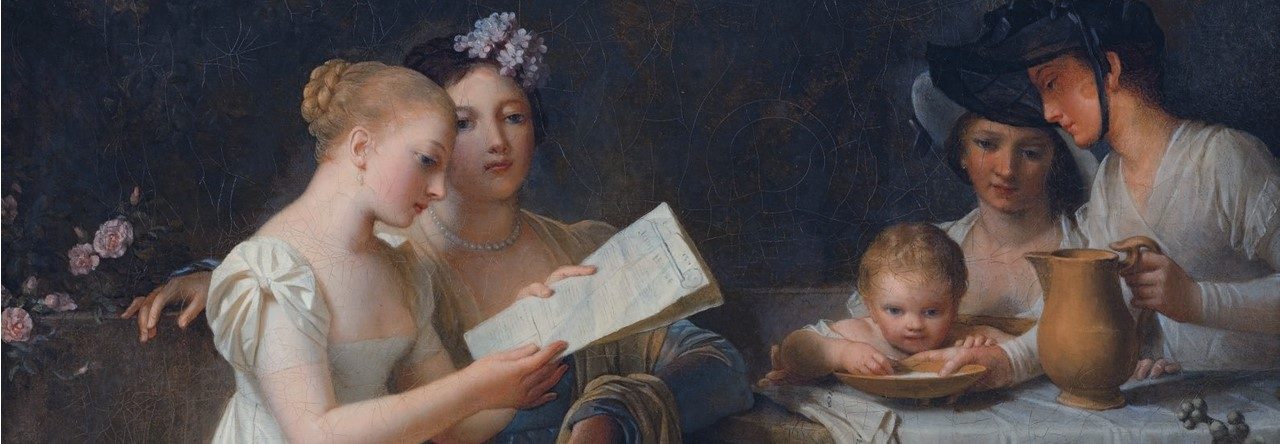
From those who have much, we ought to be able to expect much. Thus, it is all the more outrageous when a well-born and wealthy maiden–if, indeed, she is a maiden–sets an example, not of prudence and propriety, but of recklessness and scandal.
Sadly, the latest news about a formerly well-respected lady of one of the country’s foremost families is just such a case.
Some five years ago, Lady L. B. entered into a most appropriate betrothal with a gentleman of similar standing—she, the daughter of an earl; Lord T. H., the younger son of a duke. It proved to be a long betrothal. Five times, the wedding has been postponed. The Teatime Tattler understands that the gentleman was the initiator in each case.
When Lord T. attempted to postpone for the sixth time, Lady L. had had enough. She declared the betrothal at an end.
Thus far, the sympathies of our readers—particularly our lady readers—will perhaps be with the lady. Or perhaps not. After all, for a lady to break off a betrothal is scandalous. Not just because of the assumption made by those with prurient minds that the couple have taken advantage of the looser supervision afforded to those who are affianced, but also because, and we dare to say it, the end of a betrothal is almost always held to be the lady’s fault.
If she is the jilt, the assumption is that she is too picky, or too demanding, or too nice in her expectations. If the gentleman refuses to wed, onlookers will seek the reason in the character of the lady, and the results of such a search will not rebound to the damsel’s credit.
Lady L.’s next move might clarify questions of fault. No sooner had she given Lord T. his quittance, that she approached a well-known personage whose income derives at least as much from her matchmaking services as from her gambling hell.
Yes, dear reader, Lady L. sought to purchase a husband through Mrs. D.L.
We understand Lady L. was offered four choices and asked to select two. Offered three gentlemen who are upstanding members of London society, and one violinist who works for Mrs. D.L. in said gambling den, Lady L. rejected the two men from aristocratic families and chose the remaining gentleman and one fiddler. A fiddler who cannot, furthermore, walk without crutches. Does this suggest that the lady has low tastes.
The two successful candidates will compete for the lady’s hand within the next few evenings. We wait with bated breath to discover the outcome. As, we are certain, does Lady L.
Will Lady L. be glad, in years to come, that she rejected Lord T. and gambled with her future happiness, placing it all on a long shot at a gambling den? Or will she have cause to remember the old saying, “Better the devil you know than the devil you don’t.”

Hook, Lyon and Sinker
When Lady Laureline Barker asks Mrs. Dove Lyons to find her a husband, she does not expect one of her choices to be the man she admired years ago, when she was still a schoolgirl—the man who rescued her from drowning. He is also a war hero, famed for trading his own freedom and health for the safety of others.
Laurel is committed to a contest, with the winner taking her and her dowry. Can she back out? And will he still want her if she does?
Angelico Warrington doesn’t expect Laurel to remember him. Even if she does, why should she favor him over other suitors? She is the respected sister to an earl, the only flaw on her reputation that she refused to marry a jerk who has been putting off the wedding date for five years.
Angel is a musician in a gambling den, unable to walk without crutches, and with no place in the Society to which Laurel belongs.
This apparently ill-assorted couple are a perfect match, but history must repeat itself and secrets be revealed before they can win their happy ending.
https://www.amazon.com/Hook-Lyon-Sinker-Lyons-Den-ebook/dp/B0CSF79RMD
Hook, Lyon and Sinker is part of the Lyon’s Den Connected World, and also a book in Jude Knight’s A Twist Upon a Regency Tale series. It is inspired by The Little Mermaid, with the roles of hero and heroine reversed.


Leave a Reply